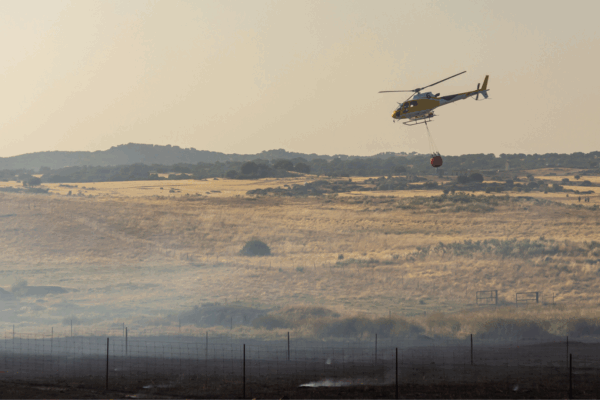Check out the latest news articles, research and progress to tackle air pollution around the world.
Just a third of South Africa’s air quality monitoring stations fully operational
Only a third of South Africa’s 130 air quality stations were fully operational in July 2025, and many other African nations have almost no monitoring at all. As air pollution becomes a growing threat across the rapidly urbanising continent, experts warn that weak monitoring systems and limited budget, technical capacity and political will could hamper the region’s ability to protect communities’ health.
London meets legal limits for NO2
London has met legal limits for nitrogen dioxide (NO2) levels – nearly 200 years earlier than projected. While this is a major milestone for the city, other UK regions are lagging behind on meeting both legal and WHO air quality limits, affecting the health of millions.
Air pollution linked to poor sleep
A global review of 25 studies covering 1.2 million people found long-term exposure to air pollutants like particulate matter (PM2.5) and nitrogen dioxide is linked to poorer sleep quality and shorter rest. The study led by Johns Hopkins University School of Nursing found the effects are particularly pronounced in older adults.
Childhood pollution exposure and long term health effects
A University of Bristol study showed that exposure to air pollution from the womb through to age 18 is linked to higher blood pressure, faster heart rates and possible changes in artery thickness. The research suggests harm accumulates over time, with disadvantaged young people facing the greatest risks.
Wildfire pollutants wreck air quality and clean air progress
A report from the World Meteorological Organization says climate change-driven wildfires are releasing a “witches’ brew” of pollutants that can degrade air quality even a continent away. Experts warn about the potential risk to infrastructure, ecosystems and human health, highlighting the transboundary nature of air pollution to cause damage.
A global study found that fire-related PM2.5 has risen sharply since the 1990s, reversing clean air progress. Experts found extreme smoke days have tripled, with exposure linked to rising respiratory and cardiovascular deaths.
Glasgow’s low emission zone progress
Glasgow has reportedly cut air pollution in the city centre by a third since the enforcement of its Low Emission Zone, with local authorities predicting fewer deaths as a result. But concerns remain about high pollution in other parts of the city.
Action on air pollution falls short at UNGA80
The UN Political Declaration on non-communicable diseases made at the UN General Assembly Meeting barely mentioned air pollution – despite it being the world’s largest environmental health risk. The declaration also neglected to recognise the role of fossil fuels in driving climate-related health harm, which they have been found to do across every stage of their life cycle.
As Clean Air Fund CEO Jane Burston wrote to the Guardian, clean air must be treated as a global priority for health, with multilateral commitment to prevent millions of avoidable deaths.
London’s Clean Air Routes
Westminster City Council has launched Clean Air Routes London, an interactive map showing walking and cycling options with lower pollution exposure. The tool supports the council’s 2025-30 Air Quality Action Plan and aims to reduce health risks while promoting active travel.


